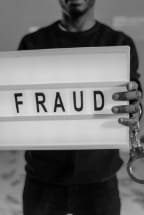-
Jan 30, 2025
-
Harrrison Carroll

If your boss instructs you to notarize an illegal document, then you face a challenging and an ethically challenging situation. Notarizing a document is an solemn duty. A notary must verify the identity of the signer and that they are signing voluntarily and of their free will. To notarize a document is to authenticate that it is valid. It requires that the document is lawful, truthful, and filled out according to law. If the document your supervisor asks you to notarize is illegal, it is critical that you consider the implications of your actions before you proceed. This is yet another reason why a notary may wish to consider Notary Insurance. You are free to read our article on this.
Legal and Ethical Considerations to Notarize a Document
Most importantly, signing an illegal document as a notary is unethical. A notary public cannot authenticate a document which they know it is fraudulent. If you authenticate a document that proves to be illegal, you may be held liable. This can have drastic consequences. This includes fines, professional disqualification, or criminal prosecution. Another blog post you may wish to read is “Notaries must avoid conflicts of Interest.”
It is also ethically wrong to notarize an illegal document since it can have drastic personal and professional consequences. It can destroy your image and mar your professional integrity. To be an accomplice to a criminal act also results in negative personal repercussions, particularly if the case is escalated further. Even though you are only following direct instruction from your immediate supervisor, you are still answerable for whatever you do. You may prefer to read our article on how to handle it when a client does not show up.
The Duty of a Notary
A notary public must remain impartial and act according to law. This means not notarizing documents that appear questionable. In addition, Notaries are required to ensure that signers understand what they are signing. You can visit the New York Department of State for further information related to notarial duties.
Dealing with the Situation
If you find yourself in this situation, it is important to protect yourself. You need to avoid any illegal activity. Start by questioning your boss’s demand and examine the document closely. If you suspect that the document is illegal, ask your boss for clarification. if necessary, seek a lawyer’s opinion. A lawyer can see the specific risks involved and tell you what to do. If you’re certain that the document is illegal, you must refuse to notarize it, even if your boss insists otherwise.
It can be hard to decline your boss. There is often workplace pressures Still, it is critical to remain firm on professional integrity. If your boss gets upset, take careful record of the incident and document any demands or instructions that you are requested to follow as may suggest that there is pressure being applied not to notarize the document. Defending yourself legally has to be paramount, and you never have to place a request ahead of your ethics, even if it means not performing a notarization.
Conclusion
As a notary public, you swore to uphold the law. If the supervisor asks you to notarize an illegal document, the best course of action is to refuse and speak with an attorney. Protect yourself. Your professional reputation, and moral principles is of much greater value than obeying an illegal request, no matter what pressure you might be subjected to.
Comments are closed.